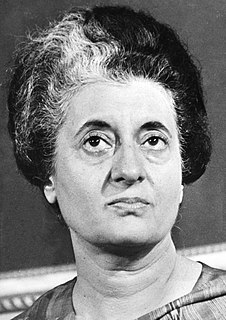
Fakhruddin Ali Ahmed was the fifth President of India from 1974 to 1977 and also the 2nd President of India to die in office.

Indira Goswami, known by her pen name Mamoni Raisom Goswami and popularly as Mamoni Baideo, was an Assamese editor, poet, professor, scholar and writer.

Barua ; which is also spelled as Baruah, Barooah, Baruwa, Baroova, Barooa, Baroowa, Borooah, Boruah, Baroa; is a common Assamese surname. The surname Barua is usually associated with someone who is an Assamese or Asamiya.

Gauripur is a semi-urban town under Gauripur Town Committee in the Dhubri district in the state of Assam, India.

Assamese literature is the entire corpus of poetry, novels, short stories, documents and other writings in the Assamese language. It also includes the literary works in the older forms of the language during its evolution to the contemporary form and its cultural heritage and tradition. The literary heritage of the Assamese language can be traced back to the c. 9-10th century in the Charyapada, where the earliest elements of the language can be discerned.
Assamese cinema, also known as Jollywood cinemas, is cinema in the Assamese language, watched primarily in Assam, India. The industry was born in 1935 when Jyoti Prasad Agarwala released his movie Joymoti. Since then Assamese cinema has developed a slow-paced, sensitive style, especially with the movies of Bhabendra Nath Saikia and Jahnu Barua. The industry is sometimes called Jollywood, named for Agarwala and his Jyoti Chitraban Film Studio.

Jahnu Barua is a multiple national and international award-winning Indian film director from Assam He has written and directed a number of Assamese and Hindi films. Some of his notable films are Halodhia Choraye Baodhan Khai (Catastrophe), Firingoti (Spark), Hkhagoroloi Bohu Door, Maine Gandhi Ko Nahi Mara, Konikar Ramdhenu, Baandhon, Ajeyo (Invincible) etc.
Paresh Baruah, also known by his aliasParesh Asom, is an insurgent of the armed insurgent group ULFA, which is seeking Independence for Assam from the Indian Union. He is the vice-chairperson and the commander-in-chief of the United Liberation Front of Assam – Independent. It is pertinent to mention that he is currently residing in China under the protection of the state."

Hem Barua was a prominent Assamese poet and politician from Assam.

Joymoti or Joimoti, released on 10 March 1935, was the first Assamese film made. Based on Lakshminath Bezbaroa's play about the 17th-century Ahom princess Soti Joymoti, the film was produced and directed by the noted Assamese poet, author, and film-maker Jyoti Prasad Agarwala, and starred Aideu Handique and acclaimed stage actor and playwright Phani Sarma. The film, shot between 1933 and 1935, was released by Chitralekha Movietone in 1935 and marked the beginning of Assamese cinema.
Gunabhiram Barua was a nineteenth century Assamese intellectual who ushered in new ideas of social reform in the early years of colonial rule in Assam. He was deeply influenced by the progressive intellectual currents of the Bengal Renaissance. He was among the few Assamese publicists who had formally entered the Brahmo Samaj. All his life he propagated its liberal ideas through his writings.
Literature from North East India refers to literature of in the languages of North East India and the body of work by English-language writers from this region. North-East India is an under-represented region in many ways. The troubled political climate, the beautiful landscape and the confluence of various ethnic groups perhaps have given rise to a body of writing that is completely different from Indian English Literature. North-East India was a colonial construct and continues to be one by virtue of having a historically difficult relationship with the Indian nation state.

Joi Barua is an Indian singer and music composer. Born in Digboi, Assam, he started his career by singing advertising jingles and later did playback singing for Hindi, Assamese and Telugu films. He is also the lead vocalist of the band Joi. Barua has a mixed musical style incorporating elements of rock, soul, jazz, folk and world music.

Maniram Dutta Baruah, popularly known as Maniram Dewan, was an Assamese nobleman in British India. He was one of the first people to establish tea gardens in Assam. A loyal ally of the British East India Company in his early years, he was hanged by the British for conspiring against them during the 1857 uprising. He was popular among the people of Upper Assam as "Kalita Raja".

Hem Barua was an Indian independence activist, social worker and writer from Sonitpur district of the Indian state of Assam. For his remarkable works to the people of Assam, he is called Tyagbir (ত্যাগবীৰ).
Bhubanmohan Baruah was a novelist, short story writer from Assam. He wrote many novels under the pen-name of Kanchan Baruah.
Pushpalata Das (1915–2003) was an Indian independence activist, social worker, Gandhian and legislator from the north-east Indian state of Assam. She was a member of Rajya Sabha from 1951 to 1961, a member of the Assam Legislative Assembly and a member of the working committee of the Indian National Congress. She served as the chairperson of the Assam chapters of the Kasturba Gandhi National Memorial Trust and Khadi and Village Industries Commission. The Government of India awarded her the third highest civilian honour of the Padma Bhushan, in 1999, for her contributions to society.

Bobby Sarma Baruah is an Indian Film maker, Producer and Screenwriter who provides narrative content of socio cultural issues through cinema across North East and Assam. Her debut feature film Adomya was awarded best film in spiritual category at the 13th Dhaka International Film Festival, with a content exploring the sensitivity and emotional side of women. Her second work of art "Sonar Baran Pakhi", a biopic based on life and time of the legendary folk singer of Assam Late Padmashree Pratima Barua Pandey has been recently completed. As director, producer and scriptwriter, Bobby Sarma Baruah has a number of short films, documentaries, music videos and TV serials on various indigenous folk cultures. She is also an accomplished poet and short story writer in Assamese language.
















